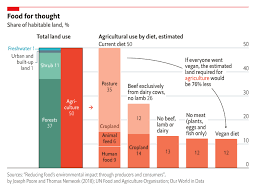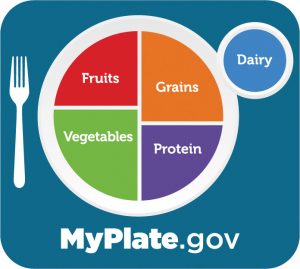
Vegetarians and vegans are great ways to reduce the environmental impact. Reducing your consumption of animal products will help the environment in many other ways. Reducing your meat consumption can help you reduce your overall food intake. Animals require a lot. You can also choose from a variety of vegetarian or vegan options, if you have concerns about how much meat you consume.
Plant-based diets
The environmental benefits of plant-based foods are enormous. Plant-based diets require less land to grow than meat-based ones. The University of Oxford estimates that a plant-based diet could save as much as 35-50% of cropland. It could also help save around 6.6 billion metric tonnes of nitrogen fertilizer, and 280 millions metric tons of CO2 each year.
Studies have shown that animal products, such as meat and dairy products, are responsible for 14.5% all human-induced greenhouse gases. This can be reduced if there are fewer animals and better farming practices. Some farms even compost animal waste and use methane gas as an energy source. A greater percentage of plant-based foods is better than animal foods, but they can still be part of a sustainable diet.
Flexitarianism
Recent research has demonstrated the value qualitative research in identifying mundane barriers as well as facilitators. These facilitators and barriers are often located in areas of capability and opportunities. These findings are a combination of findings from two explorative investigations that investigated the attitudes and behaviors of Dutch flexitarians regarding their preferred diet.

Findings show that motivations for a flexible diet are linked with ability and opportunity. These variables are interrelated, and can be used as a basis for understanding the motivations of modern food consumers. These two variables can be used as a guideline to help individuals become food innovators for a healthy world.
Veganism
While there are many benefits of veganism, it does not meet the criteria for sustainability. Veganism uses less land per capita than other diets. Even though this sounds great, meat causes five times more emissions than a vegan diet. It is better to choose locally grown produce than to transport it long distances. Buying local foods also ensures that you are not supporting a company that exploits workers or uses poor labour practices.
Another problem with veganism is the deprivation of many vital nutrients. Because most plant-based foods lack essential nutrients, this is a problem. And although these foods may contain some essential nutrients, their bioavailability may be limited. Vegans need to ensure they are able to eat a variety foods with different nutritional value.
Vegetarianism
A vegetarian diet's environmental impact can be determined by how much water it uses and how much land it occupies. The EAT–Lancet Commission was a group comprised of 16 scientists. It evaluated a variety environmental impacts associated to different diets. It found that vegetarian diets had minimal environmental impacts and consumed the least amount water and land.
Although the health benefits associated with a vegetarian diet have been widely recognized, policymakers should also take into account other considerations. For instance, some farmers and pastoralists may find it beneficial to eat meat in certain circumstances. They are increasingly dependent for global markets. In either case, policymakers should be aware of the different impacts of vegetarian diets in order to create sustainable agricultural systems.

Pescatarian diets
Although most vegetarians oppose the killing of animals for food, they are better at animal welfare than pescatarians. Since fish don't have a neural network, they don't feel pain, making them a more humane choice. Furthermore, pescatarian diets support sustainable farming practices.
Pescatarians eat a diet that is similar to those of the Mediterranean, Japanese, or Nordic countries. The emphasis is on fresh vegetables and fish. It also contains far less meat than traditional Western diets, which typically contain large amounts of red meat, fat, and carbohydrates.
FAQ
What is the difference of a virus from a bacteria?
A virus is an organism microscopic that can't reproduce outside its host cells. A bacterium, a single-celled organism, reproduces by splitting into two. Viruses are small, around 20 nanometers in size. Bacteria are much larger, at 1 micron.
Viruses can spread from contact with bodily fluids that are infected such as saliva, urine or semen. Bacteria can be spread by direct contact with infected objects and surfaces.
Viral infections can also be introduced to our bodies by a variety of cuts, scrapes or bites. They may also enter through the nose, mouth, eyes, ears, vagina, rectum , or anus.
Bacteria can enter the body through cuts, scrapes burns and other injuries to the skin. They may also enter our bodies from food, water, soil, dust, and animals.
Both bacteria and viruses can cause illness. But viruses can't multiply within their host. Infecting living cells is what causes them to become sick.
Bacteria can multiply within their hosts and cause illness. They can infiltrate other parts of the body. To kill them, we must use antibiotics.
Increase immunity with herbs or supplements
You can boost your immune function with herbs and natural remedies. Ginger, garlic, ginger, oregano oils, echinacea and ginkgo biloba are some of the most common.
These herbal remedies shouldn't be used to replace traditional medical treatment. They could cause side effects like nausea, dizziness or stomach cramps, dizziness as well as allergic reactions.
What is the difference between calories and kilocalories?
Calories refer to units that are used for measuring the amount of energy contained in food. A calorie is a unit of measure. One calorie is the amount of energy required to heat one gram water one degree Celsius.
Kilocalories is another name for calories. Kilocalories are measured as a thousandth of a calorie. 1000 calories equals 1 kilocalorie.
Does cold make you weaker?
There are two types of people in the world: those who love winter and those that hate it. But, regardless of whether you love or loathe winter, you might be wondering why it makes you miserable.
Our bodies are made to function well in warm weather. Our bodies were designed to thrive in hot weather because this is where the majority of our food sources are.
However, our environment is quite different than that of our ancestors. We spend a lot more time indoors, and are more likely to be exposed to extreme temperatures like heat and cold.
Our bodies aren’t accustomed to extreme temperatures anymore. When we venture out, our bodies are unable to handle the extremes. This leaves us feeling exhausted, sluggish, or even sick.
There are some ways to reduce these side effects. One way is to make sure that you stay well-hydrated throughout the day. Hydration is key to keeping your body well hydrated, flushing out toxins and maintaining a healthy weight.
You must also ensure that you are eating healthy foods. Your body will stay at its best when you eat healthy foods. This is especially important for those who spend long periods inside.
Take a few minutes every morning to meditate. Meditation is a great way to relax your body and mind. It makes it easier for you to cope with stress and illness.
What are the 7 keys to a healthy, happy life?
-
Eat right
-
Exercise regularly
-
Sleep well
-
Drink lots of water
-
Get enough rest
-
Happy!
-
Smile often.
Statistics
- In both adults and children, the intake of free sugars should be reduced to less than 10% of total energy intake. (who.int)
- This article received 11 testimonials and 86% of readers who voted found it helpful, earning it our reader-approved status. (wikihow.com)
- According to the Physical Activity Guidelines for Americans, we should strive for at least 150 minutes of moderate intensity activity each week (54Trusted Source Smoking, harmful use of drugs, and alcohol abuse can all seriously negatively affect your health. (healthline.com)
- WHO recommends reducing saturated fats to less than 10% of total energy intake; reducing trans-fats to less than 1% of total energy intake; and replacing both saturated fats and trans-fats to unsaturated fats. (who.int)
External Links
How To
27 steps to a healthy lifestyle if your family only eats junk food
It is easy to eat healthy when you cook at home. But, it can be hard to make healthy meals because many people don't know how. This article will offer some suggestions on making healthier choices when dining out.
-
Consider eating at restaurants that serve healthy meals.
-
Order salads, vegetables and meat before placing your order.
-
Ask for sauces without added sugar.
-
Avoid fried items
-
Choose grilled meats over fried.
-
You shouldn't order dessert unless it is absolutely necessary.
-
Make sure that you have something else to eat after dinner.
-
Always eat slowly and chew your food thoroughly.
-
Eat water.
-
Do not skip breakfast or lunch.
-
Every meal should include fruit and vegetables.
-
Consider drinking milk instead of soda.
-
Try to avoid sugary drinks.
-
Reduce the salt content of your diet.
-
Limit the amount of time you eat at fast food restaurants.
-
Ask someone to join you if you cannot resist temptation.
-
Do not let your kids watch too much TV.
-
Turn off the television during meals.
-
Do not drink energy drinks.
-
Regular breaks from work are important.
-
Exercise early in the morning.
-
Exercise everyday.
-
Start small and increase your knowledge slowly.
-
Set realistic goals.
-
Be patient.
-
Find time to exercise even if you don't feel like it.
-
Use positive thinking.